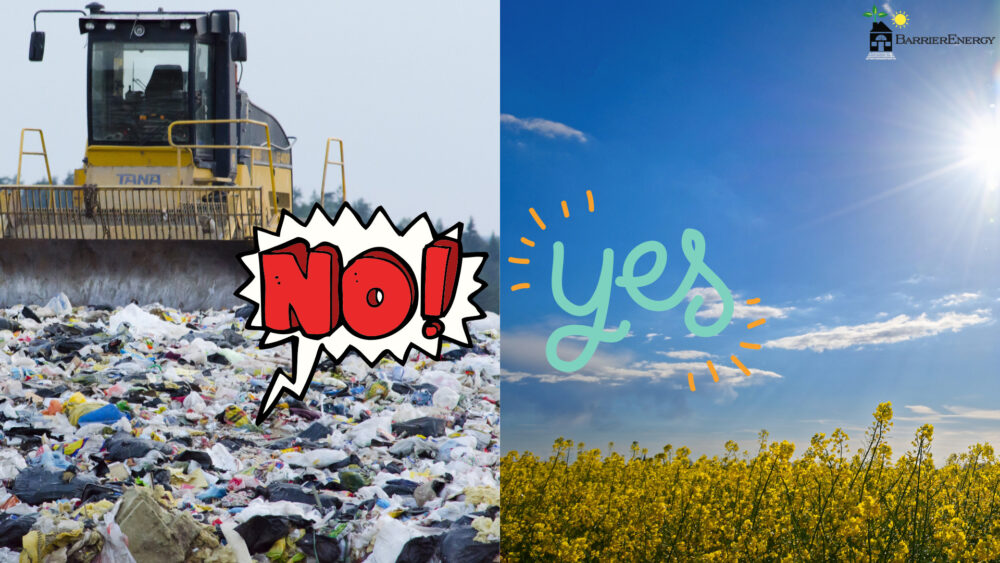From Throw-Away Culture to Zero Waste Cities
1st World Country Problems: Trash
Humans’ capitalistic desire for convenience creates throw-away societies. We have become obsessed with single-use products that are simple and cheap. Likewise, our wardrobes, accessories, and tools all have expiration dates. Often, these products cannot be broken down by the environment in a natural manner. They can take hundreds or thousands of years to decompose. Many problems arise from these types of non-disposable products, as discussed in this educational video. San Fransisco is proving the model of zero-waste cities.
We are drowning ourselves in our own trash. It’s not only discomfort we must worry about. Worse, we are killing the environment in the process. Species are going extinct as pollution increases. Unfortunately, this could be the beginning of our own demise.
Solution: Zero Waste Cities
Zero waste is the only solution to a throw-away society. Communities are proving it’s possible. For example, in the video above, San Francisco was able to reduce its trash by roughly 80%. That doesn’t mean we have to get rid of convenience, either. In truth, we can eliminate our waste through simple policies such as recycling, composting, and utilizing biodegradables. These three solutions should be implemented into our current systems.
Recycling
Most people already know what recycling is because it’s become so widespread. It’s one of the easiest things to do because it’s already integrated with our current trash collection systems. Whether out of laziness or misinformation, many people still do not actively recycle. My least favorite reason lately is “it’s all going to get thrown away anyways because China stopped buying our recyclables”. My response to that it was never really China’s problem to deal with our trash in the first place. All we can do now is take the steps that are currently available to us, and allow the process to evolve. It certainly doesn’t mean we should throw our hands up and give up! Let’s voice our opinions to political leaders that we want a new way of utilizing our own recyclables. For example, we could enforce a ‘plastic tax’ on US corporations that make new plastic instead of purchasing recycled plastic for their products. In the meantime, let’s keep doing our parts individually because that’s all we have control over.
Composting
Contrarily, composting is not as well-known as recycling. Composting involves separating natural waste from man-made waste so that it can be naturally broken down by the environment. Imagine how easy it would be to integrate this process into our current trash collection! I think a lot more people would get involved if the process was made easy by a third trash bin collectors can pick up from their doorsteps. Once again, we could use the enriched soil produced by composting on American farms. The earth already has a complex system of recycling, which we can learn from. We are capable of maintaining balance with the environment if we learn to negate our own waste products.
Biodegradables
Lastly, biodegradable products could potentially solve our throw-away society problems entirely. Biodegradable products decompose naturally by microorganisms. Somehow, the concept wasn’t discussed in this video, except in the context of compost. Hence, this input is my final reaction to this inspirational video. Collectively, we could eliminate non-disposable products, such as plastic, through legislation. There are many options that could replace plastic as we know it. For instance, bamboo is used for toothbrush handles. Hemp is a wonderful alternative to plastic. Surprisingly, hemp can be used to make just about anything, from bottles to clothing. It may take time, but outlawing single-use products is an attainable future and a better future.
Zero Waste Cities
In conclusion, trash is a thing of the past. If we don’t change, we are setting ourselves up for catastrophe. What can you do about it? You can write letters to local politicians to let them know we need to secure our future. Find supporting programs happening near you. Or start a compost bin yourself. When you can’t change the poor behavior of others, all you can do is stop contributing to the problem. Set the example you’d like to see!
Enjoyed this article? Take the next step and continue reading about Zero-Net Energy. Or, subscribe to our blog for more educational content.


Recent Comments